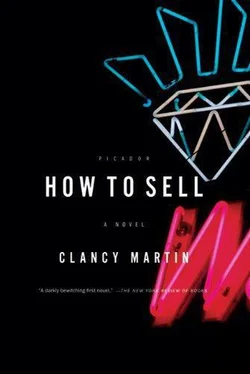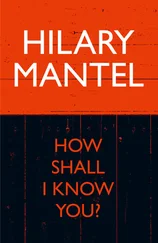Those words made me anxious, because Lisa had used the same expression just the other day. She had said, “You and your brother are both just a couple of kids, Bobby.” I did not mind being called a kid, or even hearing Jim described as a kid. What I didn’t like was Dad repeating Lisa’s words.
T wo days later, in a Denny’s on the west side of downtown, the icy morning he left, my father changed. I think this was the first time I met the man who would become my new father. He was angry with me because I was not responding to remarks of Priscilla’s. I had known Priscilla for years. She was not a normal imaginary friend. She was an important resident of a foreign planet. The planet existed in a parallel universe. When he first told me about her, when I was seven years old, he said he had met her “just through dumb luck” on an astral trip during his initiation as an Eckankar trainer. I suppose she was in the audience. My father consulted Priscilla on personal and sexual concerns of his clients and parishioners. He insisted he was a mystic, not a psychic, which meant that he never charged for his consultations with Priscilla. He did, however, charge for his counseling. He had a PhD in counseling from an outfit in southern California.
Around the time I turned twelve Priscilla became a person whom my father could see and converse with, though she remained hidden to me because of my spiritual condition. But by now my father had abandoned this distinction and demanded that Priscilla be treated with ordinary social courtesy. So he was shouting at me in Denny’s because I was not answering Priscilla’s questions. This time I felt I had to admit to myself that my father was not merely playing at being a crazy person like he might otherwise have done, for the pity. Maybe he really was a schizophrenic, or worse, like our mother had insisted for years.
Naturally I do not know what questions Priscilla was asking. They were probably simple questions about my mother, the store, my brother, my sex life, hopefully not Lisa, et cetera. I knew Priscilla had good manners and common sense. I pictured her in her forties, with graying blond hair and glasses. She might have worn a button-down sweater over a T-shirt, and come from a college town in British Columbia or Washington state.
Maybe it is only his blood sugar, I thought. He had severe diabetes.
The scene ended when my father threw his glass of iced coffee at me. Then he left without paying the check. The glass broke when it hit my head. I had milk and coffee on my face.
The waitress came with a clean rag and some paper napkins. She mopped up the table.
“Your eyebrow is bleeding,” she said. “He’s your dad?” she asked me. I nodded. I was grateful for some sympathy.
“You should be respectful of your dad,” she said. “What did you say to him?” She shook her head.
“It’s seventeen dollars,” she said. At Denny’s you pay at the register. I asked her to refill my Coke and for a second bacon scrambler. I knew he would drive around downtown for half an hour and then come back. It was his last day in Texas before getting back on the road. He would come back to say goodbye before he hit the highway. Plus I had left my wallet at the store and I didn’t have any money.
“After you pay your check,” the waitress said.
“Put it on this check,” I said. “I’m not finished.”
“Oh, yes, you are,” she said.
Years after, when Jim and I were partners in our own store, I might tell a version of this story to one or another customer I liked — they do exist — and the customer would say something along the lines of: “So that’s when you finally knew your dad was insane?” Then I felt an unfamiliar obligation to assert myself: not in defense of my father, and not for my own sake, either, but on account of the truth. I wanted to reply: What the hell makes you think he was crazy? Because you’ve never seen another world, you know it doesn’t exist? That’s called an argument from ignorance, and of all the twenty-two logical fallacies it’s the easiest to understand. Look, I don’t expect that when the curtain goes down, and I am alone in the hospital room, with the lights fading, and the world, the whole world, is vanishing into the dark, that, suddenly, like the best birthday surprise you ever got, the fluorescents will spark back on and everyone will shout, “Surprise!”—all the dead people I’ve ever lost and thought I’d left behind, there, ringing my bed, with gifts in their hands, or with their arms open to receive me — and I will rise from the white hospital sheets and they will give me my complimentary custom-made gold-vermeil-and-carved-ivory wings. With Jesus standing there in a silver diaper. But I do not know it cannot be true. And if in another life I meet my father and he is waiting with his I-told-you-so-son-but-you-never-listen smile, I might ask him questions, but I won’t be any more astonished than I was when, say, Wendy first kissed me and then let me take off her pants and fuck her.
How are you so sure he was insane? I wanted to shout at my customer and seize him by the ears and neck, or by the hair on the back of his head, and shake his shitty face off. How the hell could you possibly know?
M ike Bloom, formerly Ezekiel Blumenstein, known to me and Jim — and Lisa, too — as Granddad, taught me those logical fallacies, and many other tricks of both rationality and motivated irrationality. Years later he became like a mentor to me. There was a short list of us who could call Mr. Blumenstein Granddad and he called each of us Grandson. Granddaughter for Lisa, of course. He was the only person I ever met in the jewelry business who told me to ask myself about the karmic implications of my actions.
The jewelry business is rich with optimistic people.
Unlike my father, Granddad was cynical about human nature, but he had led the kind of complex life that stimulates the mind. He was, for example, the only real person I had ever heard of who lost his parents to pirates. His father had been a yacht builder, a speculator, who also owned a chain of used-car lots across Texas and Oklahoma. They had been in the Canary Islands and were boarded by African pirates, and they macheted his mother and father and dumped him, the two-and-a-half-year-old, on a beach on the coast of Spain. He remembered it all quite clearly. He was raised by Basques and spoke and read nine languages. He studied phenomenology with the students of Husserl, the big boys, at Leuven. Then he moved back to Oklahoma, in honor of his father, and lived there for twenty years before taking an interest in Swiss watches and opening his present outfit in Dallas. Everyone said he had had a long, long-distance affair with Lana Turner. Because he supplied everyone, he was the best gossip in the Dallas — Fort Worth jewelry business. “I should have been a barber, Grandson,” he would tell me. “Or a fry cook. That’s an honest living. Back in the old days a barber always heard the news first. A man makes friends on that kind of information. Money, too.”
Behind his desk he kept an old Russian machine gun on a shelf. It was not because he was Russian mob. He hated the Russian advance into our market and prominently and dangerously refused to do business with them. It was the machine gun he had used when he was a teenager and fought with the Basques in Spain. If he liked you, Granddad might tell the story of the gun.
“This gun has lived up more excitement than either of us, Grandson,” he told me. “It’s one of the guns the Russians brought in before Franco, when Spain was supposed to become the Communist South beach club of Europe. The regular fucking Costa del Pinko.”
He leaned back in his chair and patted the gun with his large hand in a familiar, almost sexual way.
Читать дальше











